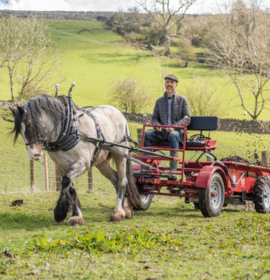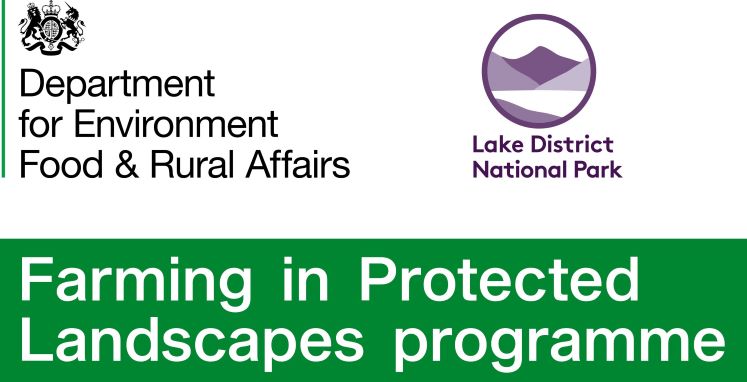
The Defra-created Farming in Protected Landscapes (FiPL) programme has supported 1637 hectares of land for regenerative farming in the Lake District in its first two years.
In the Lake District, this successful funding programme so far has also resulted in:
Such successes nationally have led to the extension of the programme to March 2025. Applications are now open for third year grants and multi-year projects.
Lake District National Park Authority’s Farming Officer Jasmine Holliday said:
“We’re delighted with the success of the Farming in Protected landscapes programme over the first two years. In year one we funded 29 projects and a further 71 projects in the second year, so 100 in total so far. These grants have ranged from £1,000 right through to £237,000.
“We have given funding to 225 farmers, many who have come back to FiPL a second time for another project. Including funding groups of farmers working together to achieve common goals through collaborative agreements.”
“There’s still £2.25 million available in the Lake District National Park to deliver against Partnership Plan actions, in particular nature recovery, climate action, and sustaining cultural heritage.”
The Farming in Protected Landscapes funding is available to farmers and landowners who are within the Lake District National Park boundary with a proposed project under one of these themes: Climate, Nature, People and Place.
Some of the Lake District FiPL successes so far are:
A project to switch to a rotational grazing, pasture-fed system.at Hall Farm, Rusland is well underway. Using FiPL funding, they are reinstating field boundaries, planting new or managing existing hedges and fencing off watercourses. The aim is to increase farm profits and enhance landscape, biodiversity, and soil health.
Farmer, Adam Hall said: "We want our farming practice to be part of the solution to those problems. We’re blessed in Rusland to have more abundance and diversity of wildlife than in some other parts of the country, but we’d still like to see more, and to connect up fragmented habitats as best we can."
Farming in Protected Landscapes funding bought nest monitoring equipment, electric fences, and a study into the conservation of curlews in the Lyth Valley.
Barny Sykes said: "The haunting call of the curlew is familiar to many in the Lyth Valley. But it’s a call that’s becoming increasingly rare. The UK’s breeding curlew population has halved in the last 25 years. They’re on the UK red list for endangered birds, and there’s a substantial risk of Curlews becoming extinct.”
The Curlew project is already seeing success with many chicks successfully hatching this year.
Tom and Anna Dutson bought Rosgill Hall in 2015. They used FiPL Funding to support their holistic approach to running their farm-based business. Their aim was to make improvements to benefit nature, climate, people, and place whilst also developing their diversified income streams.
Tom said: “One important strand is our small farm-based sawmill. We mill Cumbrian grown larch into various products. We also mill green oak, for beams and lintels, and have a stock of air-dried hardwoods including ash, beech, cherry, elm, oak, and sycamore.
“On our farm we keep rare and hardy native breeds including Dales Ponies, Riggit Galloway cattle, Soay and Herdwick sheep and Old English Goats.
"We found the team that delivered the funding to be flexible and receptive to our ideas about business development and improving our farm."
For more information on these success stories and details of the FiPL funding available please visit our farming pages.
